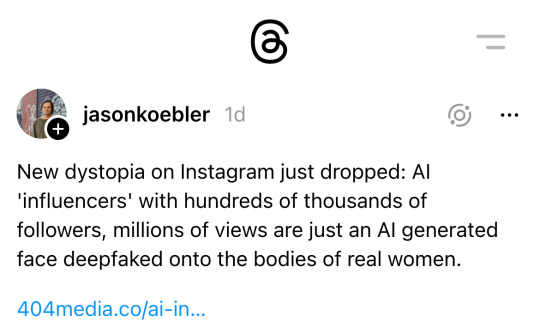#computing market
Explore tagged Tumblr posts
Text
Next Generation Computing Market is Estimated to Witness High Growth Owing to Developments in Cloud Computing

Next generation computing includes technologies like cloud computing, edge computing and quantum computing. Cloud computing provides on-demand access to shared computing resources like servers, storage, networking, software and analytics over the internet. It allows business and individuals to avoid upfront infrastructure costs while paying only for resources that are consumed. Edge computing moves computing and data storage closer to the sources of data generation like Internet-connected devices. This ensures lower latency and faster insights from real-time analytics of data generated at the edge. Quantum computing uses the principles of quantum mechanics like superposition and entanglement to process information exponentially faster than classical computers for specific problem sets.
The Global Next Generation Computing Market is estimated to be valued at US$ 168.57 Bn in 2024 and is expected to exhibit a CAGR of 19% over the forecast period 2024 to 2031.
Key Takeaways
Key players operating in the Next Generation Computing are Amazon Web Services (AWS), Alphabet Inc. (Google), AMD (Advanced Micro Devices, Inc.), Apple Inc., IBM Corporation, Intel Corporation, Microsoft Corporation, NVIDIA Corporation, Oracle Corporation, Qualcomm Incorporated, Samsung Electronics Co., Ltd., SAP SE, Supermicro Computer, Inc., Tencent Holdings Limited, and Texas Instruments Incorporated.
The Next Generation Computing Market Size in cloud computing and edge computing adoption across industries, increasing investments in quantum computing research and expanding application landscape of advanced computing technologies.
Technological advancements fueling the next generation computing market include developments in cloud, edge and quantum computing offerings, next-gen processors and hardware, 5G and wireless technologies enabling IoT/edge devices, artificial intelligence and machine learning.
Market Drivers
Rapid increase in data volumes generated across industries is driving the need for scalable and efficient next generation computing platforms. Proliferation of IoT devices connected over networks is another key factor pushing the demand for distributed and real-time computing power. Growing requirement of advanced analytics, simulation and modeling capabilities for applications in transportation, healthcare and manufacturing is boosting investments in high performance cloud, edge and quantum solutions.
Challenges in Next Generation Computing Market
The Next Generation Computing Market Size And Trends is currently facing challenges such as high infrastructure costs for setting up data centers and lack of skilled workforce. Setting up data centers requires huge capital investments which is a major challenge for small and medium organizations. There is also a lack of skills required for managing big data, cloud, artificial intelligence and other emerging technologies. Setting up high performance computing infrastructure also requires significant upfront costs which small players find difficult to afford. Cybersecurity also poses a major challenge as more applications and data shift to the cloud. Protecting massive amounts of data from unauthorized access and ensuring privacy has become critical.
SWOT Analysis
Strength: Scalability and flexibility of cloud computing; Growing demand for high performance data analytics and AI Weakness: High initial infrastructure costs; Cybersecurity and privacy challenges Opportunity: Growth of IoT and edge computing; Increased focus on automation and application modernization Threats: Dependency on few technology giants; Stringent data protection regulations
Geographically, North America currently holds the largest share in the next generation computing market mainly due to heavy investments in cloud computing and data center build outs by major tech companies in the US. The Asia Pacific region is expected to be the fastest growing regional market during the forecast period driven by rapid digital transformation initiatives across industries in major economies like China and India. Countries are implementing national level programs to promote adoption of advanced computing technologies.
In terms of value, the next generation computing market is highly concentrated in the US currently, accounting for over 30% of the global market size. This is attributed to widespread cloud adoption by businesses as well as strategic investments by leading technology firms in the country to develop high performance computing infrastructure and next generation capabilities. China is expected to emerge as the fastest growing geographical market during 2024-2031 driven by government support for digitalization of industries using emerging technologies. Get More Insights On, Next Generation Computing Market For More Insights Discover the Report In language that Resonates with you
French
German
Italian
Russian
Japanese
Chinese
Korean
Portuguese
About Author: Ravina Pandya, Content Writer, has a strong foothold in the market research industry. She specializes in writing well-researched articles from different industries, including food and beverages, information and technology, healthcare, chemical and materials, etc. (https://www.linkedin.com/in/ravina-pandya-1a3984191)
#Next Generation Computing Market Size#Computing Market#Next Generation Computing Market Demand#Generation Computing Market#Next Generation Computing Market Trends#Next Generation Computing#Next Generation Computing Market
0 notes
Text
According to the report published by Allied Market Research, the global embedded computing market generated $36.74 billion in 2020, and is estimated to reach $85.68 billion by 2030, witnessing a CAGR of 9.1% from 2021 to 2030. The report offers a detailed analysis of changing market trends, top segments, key investment pockets, value chain, regional landscape, and competitive scenario.
0 notes
Text
Techbro marketing's conflation of generative language models with the term "artifical intelligence" to the point that many laypersons now think that's what AI is definitely sucks for, like, literally everybody who's working in genuine AI research, but I have to grant the way it's gotten tangled up with other historically inappropriate uses of the term "artificial intelligence" is a little bit funny. I've seen multiple unconnected discussions involving people seizing on the "AI is inherently unethical" talking point and getting heated about bad guys in single-player video games having "AI", and, like, I'd be fascinated to know what the alternative is. I'm trying to imagine a world where it's feasible for every individual goomba in Super Mario Bros. to be directed by a human operator, and I'm not sure I can, but it's definitely a place I'd like to visit.
#computers#technology#artificial intelligence#ai#generative language models#gaming#video games#marketing#nomenclature
2K notes
·
View notes
Text
it's my personal unevidenced belief that your average stark-brand starkphone lasts a decade+ on average and has indestructible nokia reputation and is easy to self-repair and the company's like "tony that's not sustainable financially. tony we need to release a phone every year" and he's like "i can't make it bad. i tried it but it gave me hives. i can't make bad tech it gives me hives" so it's just like that. it has a 5 day battery life it's recycled when you trade it in it doesn't need a case. it comes with iron man themed notification sounds. apple who
#HE CAN'T MAKE IT BAD. IT HAS TO BE THE BEST PHONE ON THE MARKET or he'll cry. because he's normal. i know this as a fact sorry#kayvswords#tbd#i'm having tech beef with apple re: my computer and i'm like what if tony stark was real and he made things that were good#WHAT THEN
375 notes
·
View notes
Text

new bts video confirms that upcoming chinese* wuxia bl Meet You At The Blossom will have kisses and a sex scene!
*MYATB was filmed in China and actors are from China, adapted from a chinese danmei novel, produced by Thailand, director from Taiwan
there is also an official synopsis:



the show comes out in Q2/Q3 of 2024 (source under the cut)

#meet you at the blossom#chinese bl#myatbsource#reblogs appreciated ❤️#''gender-mysterious'' JUST LIKE ME FR#these men are so damn *clenches fist* PRETTY.#no i so won at life. i've been here single-handedly doing marketing for this show AND IM GETTING EVERYTHING FROM IT IN RETURN#i will gif the whole thing as soon as i have my hands on a working computer#huaibao#myatbedit#mygifs#userjap#userspicy#huaibaoncteaser#mjtag#userblmpff#tuserkatherine#mine
244 notes
·
View notes
Text


shh...
when i saw the drip marketing i stopped and had to take a breath because GOD. i'd call her daddy ANY day of the week (sorry if you had to read that)
closeups below keep reading


#artwork#digital art#doodle#art#rkgkillust#illustration#rkgk#genshin#genshin fanart#genshin impact art#arlecchino#genshin arlecchino#fontaine#lyney and lynette#genshin lyney#genshin lynette#okay but does arlecchino count as a dilf then#thought of that undercooked dilf meme#anyways the drip marketing had me on my KNEES GASPING#it may be samover but it's arlecchinON#idk why but this looked a lot better when it wasn't on my computer#looks kinda fried now#well ig it is what it is#still testing out those gouache brushes if you couldn't tell#i like the texture of the brush because it really does look like gouache#unfortunately like gouache it is also almost impossible to undo small mistakes LMAO you just have to paint that area all over again
248 notes
·
View notes
Text
Subprime gadgets

I'm on tour with my new, nationally bestselling novel The Bezzle! Catch me THIS SUNDAY in ANAHEIM at WONDERCON: YA Fantasy, Room 207, 10 a.m.; Signing, 11 a.m.; Teaching Writing, 2 p.m., Room 213CD.

The promise of feudal security: "Surrender control over your digital life so that we, the wise, giant corporation, can ensure that you aren't tricked into catastrophic blunders that expose you to harm":
https://locusmag.com/2021/01/cory-doctorow-neofeudalism-and-the-digital-manor/
The tech giant is a feudal warlord whose platform is a fortress; move into the fortress and the warlord will defend you against the bandits roaming the lawless land beyond its walls.
That's the promise, here's the failure: What happens when the warlord decides to attack you? If a tech giant decides to do something that harms you, the fortress becomes a prison and the thick walls keep you in.
Apple does this all the time: "click this box and we will use our control over our platform to stop Facebook from spying on you" (Ios as fortress). "No matter what box you click, we will spy on you and because we control which apps you can install, we can stop you from blocking our spying" (Ios as prison):
https://pluralistic.net/2022/11/14/luxury-surveillance/#liar-liar
But it's not just Apple – any corporation that arrogates to itself the right to override your own choices about your technology will eventually yield to temptation, using that veto to help itself at your expense:
https://pluralistic.net/2023/07/28/microincentives-and-enshittification/
Once the corporation puts the gun on the mantelpiece in Act One, they're begging their KPI-obsessed managers to take it down and shoot you in the head with it in anticipation of of their annual Act Three performance review:
https://pluralistic.net/2023/12/08/playstationed/#tyler-james-hill
One particularly pernicious form of control is "trusted computing" and its handmaiden, "remote attestation." Broadly, this is when a device is designed to gather information about how it is configured and to send verifiable testaments about that configuration to third parties, even if you want to lie to those people:
https://www.eff.org/deeplinks/2023/08/your-computer-should-say-what-you-tell-it-say-1
New HP printers are designed to continuously monitor how you use them – and data-mine the documents you print for marketing data. You have to hand over a credit-card in order to use them, and HP reserves the right to fine you if your printer is unreachable, which would frustrate their ability to spy on you and charge you rent:
https://arstechnica.com/gadgets/2024/02/hp-wants-you-to-pay-up-to-36-month-to-rent-a-printer-that-it-monitors/
Under normal circumstances, this technological attack would prompt a defense, like an aftermarket mod that prevents your printer's computer from monitoring you. This is "adversarial interoperability," a once-common technological move:
https://www.eff.org/deeplinks/2019/10/adversarial-interoperability
An adversarial interoperator seeking to protect HP printer users from HP could gin up fake telemetry to send to HP, so they wouldn't be able to tell that you'd seized the means of computation, triggering fines charged to your credit card.
Enter remote attestation: if HP can create a sealed "trusted platform module" or a (less reliable) "secure enclave" that gathers and cryptographically signs information about which software your printer is running, HP can detect when you have modified it. They can force your printer to rat you out – to spill your secrets to your enemy.
Remote attestation is already a reliable feature of mobile platforms, allowing agencies and corporations whose services you use to make sure that you're perfectly defenseless – not blocking ads or tracking, or doing anything else that shifts power from them to you – before they agree to communicate with your device.
What's more, these "trusted computing" systems aren't just technological impediments to your digital wellbeing – they also carry the force of law. Under Section 1201 of the Digital Millennium Copyright Act, these snitch-chips are "an effective means of access control" which means that anyone who helps you bypass them faces a $500,000 fine and a five-year prison sentence for a first offense.
Feudal security builds fortresses out of trusted computing and remote attestation and promises to use them to defend you from marauders. Remote attestation lets them determine whether your device has been compromised by someone seeking to harm you – it gives them a reliable testament about your device's configuration even if your device has been poisoned by bandits:
https://pluralistic.net/2020/12/05/trusting-trust/#thompsons-devil
The fact that you can't override your computer's remote attestations means that you can't be tricked into doing so. That's a part of your computer that belongs to the manufacturer, not you, and it only takes orders from its owner. So long as the benevolent dictator remains benevolent, this is a protective against your own lapses, follies and missteps. But if the corporate warlord turns bandit, this makes you powerless to stop them from devouring you whole.
With that out of the way, let's talk about debt.
Debt is a normal feature of any economy, but today's debt plays a different role from the normal debt that characterized life before wages stagnated and inequality skyrocketed. 40 years ago, neoliberalism – with its assaults on unions and regulations – kicked off a multigenerational process of taking wealth away from working people to make the rich richer.
Have you ever watched a genius pickpocket like Apollo Robbins work? When Robins lifts your wristwatch, he curls his fingers around your wrist, expertly adding pressure to simulate the effect of a watchband, even as he takes away your watch. Then, he gradually releases his grip, so slowly that you don't even notice:
https://www.reddit.com/r/nextfuckinglevel/comments/ppqjya/apollo_robbins_a_master_pickpocket_effortlessly/
For the wealthy to successfully impoverish the rest of us, they had to provide something that made us feel like we were still doing OK, even as they stole our wages, our savings, and our futures. So, even as they shipped our jobs overseas in search of weak environmental laws and weaker labor protection, they shared some of the savings with us, letting us buy more with less. But if your wages keep stagnating, it doesn't matter how cheap a big-screen TV gets, because you're tapped out.
So in tandem with cheap goods from overseas sweatshops, we got easy credit: access to debt. As wages fell, debt rose up to fill the gap. For a while, it's felt OK. Your wages might be falling off, the cost of health care and university might be skyrocketing, but everything was getting cheaper, it was so easy to borrow, and your principal asset – your family home – was going up in value, too.
This period was a "bezzle," John Kenneth Galbraith's name for "The magic interval when a confidence trickster knows he has the money he has appropriated but the victim does not yet understand that he has lost it." It's the moment after Apollo Robbins has your watch but before you notice it's gone. In that moment, both you and Robbins feel like you have a watch – the world's supply of watch-derived happiness actually goes up for a moment.
There's a natural limit to debt-fueled consumption: as Michael Hudson says, "debts that can't be paid, won't be paid." Once the debtor owes more than they can pay back – or even service – creditors become less willing to advance credit to them. Worse, they start to demand the right to liquidate the debtor's assets. That can trigger some pretty intense political instability, especially when the only substantial asset most debtors own is the roof over their heads:
https://pluralistic.net/2022/11/06/the-end-of-the-road-to-serfdom/
"Debts that can't be paid, won't be paid," but that doesn't stop creditors from trying to get blood from our stones. As more of us became bankrupt, the bankruptcy system was gutted, turned into a punitive measure designed to terrorize people into continuing to pay down their debts long past the point where they can reasonably do so:
https://pluralistic.net/2022/10/09/bankruptcy-protects-fake-people-brutalizes-real-ones/
Enter "subprime" – loans advanced to people who stand no meaningful chance of every paying them back. We all remember the subprime housing bubble, in which complex and deceptive mortgages were extended to borrowers on the promise that they could either flip or remortgage their house before the subprime mortgages detonated when their "teaser rates" expired and the price of staying in your home doubled or tripled.
Subprime housing loans were extended on the belief that people would meekly render themselves homeless once the music stopped, forfeiting all the money they'd plowed into their homes because the contract said they had to. For a brief minute there, it looked like there would be a rebellion against mass foreclosure, but then Obama and Timothy Geithner decreed that millions of Americans would have to lose their homes to "foam the runways" for the banks:
https://wallstreetonparade.com/2012/08/how-treasury-secretary-geithner-foamed-the-runways-with-childrens-shattered-lives/
That's one way to run a subprime shop: offer predatory loans to people who can't afford them and then confiscate their assets when they – inevitably – fail to pay their debts off.
But there's another form of subprime, familiar to loan sharks through the ages: lend money at punitive interest rates, such that the borrower can never repay the debt, and then terrorize the borrower into making payments for as long as possible. Do this right and the borrower will pay you several times the value of the loan, and still owe you a bundle. If the borrower ever earns anything, you'll have a claim on it. Think of Americans who borrowed $79,000 to go to university, paid back $190,000 and still owe $236,000:
https://pluralistic.net/2020/12/04/kawaski-trawick/#strike-debt
This kind of loan-sharking is profitable, but labor-intensive. It requires that the debtor make payments they fundamentally can't afford. The usurer needs to get their straw right down into the very bottom of the borrower's milkshake and suck up every drop. You need to convince the debtor to sell their wedding ring, then dip into their kid's college fund, then steal their father's coin collection, and, then break into cars to steal the stereos. It takes a lot of person-to-person work to keep your sucker sufficiently motivated to do all that.
This is where digital meets subprime. There's $1T worth of subprime car-loans in America. These are pure predation: the lender sells a beater to a mark, offering a low down-payment loan with a low initial interest rate. The borrower makes payments at that rate for a couple of months, but then the rate blows up to more than they can afford.
Trusted computing makes this marginal racket into a serious industry. First, there's the ability of the car to narc you out to the repo man by reporting on its location. Tesla does one better: if you get behind in your payments, your Tesla immobilizes itself and phones home, waits for the repo man to come to the parking lot, then it backs itself out of the spot while honking its horn and flashing its lights:
https://tiremeetsroad.com/2021/03/18/tesla-allegedly-remotely-unlocks-model-3-owners-car-uses-smart-summon-to-help-repo-agent/
That immobilization trick shows how a canny subprime car-lender can combine the two kinds of subprime: they can secure the loan against an asset (the car), but also coerce borrowers into prioritizing repayment over other necessities of life. After your car immobilizes itself, you just might decide to call the dealership and put down your credit card, even if that means not being able to afford groceries or child support or rent.
One thing we can say about digital tools: they're flexible. Any sadistic motivational technique a lender can dream up, a computerized device can execute. The subprime car market relies on a spectrum of coercive tactics: cars that immobilize themselves, sure, but how about cars that turn on their speakers to max and blare a continuous recording telling you that you're a deadbeat and demanding payment?
https://archive.nytimes.com/dealbook.nytimes.com/2014/09/24/miss-a-payment-good-luck-moving-that-car/
The more a subprime lender can rely on a gadget to torment you on their behalf, the more loans they can issue. Here, at last, is a form of automation-driven mass unemployment: normally, an economy that has been fully captured by wealthy oligarchs needs squadrons of cruel arm-breakers to convince the plebs to prioritize debt service over survival. The infinitely flexible, tireless digital arm-breakers enabled by trusted computing have deprived all of those skilled torturers of their rightful employment:
https://pluralistic.net/2021/04/02/innovation-unlocks-markets/#digital-arm-breakers
The world leader in trusted computing isn't cars, though – it's phones. Long before anyone figured out how to make a car take orders from its manufacturer over the objections of its driver, Apple and Google were inventing "curating computing" whose app stores determined which software you could run and how you could run it.
Back in 2021, Indian subprime lenders hit on the strategy of securing their loans by loading borrowers' phones up with digital arm-breaking software:
https://restofworld.org/2021/loans-that-hijack-your-phone-are-coming-to-india/
The software would gather statistics on your app usage. When you missed a payment, the phone would block you from accessing your most frequently used app. If that didn't motivate you to pay, you'd lose your second-most favorite app, then your third, fourth, etc.
This kind of digital arm-breaking is only possible if your phone is designed to prioritize remote instructions – from the manufacturer and its app makers – over your own. It also only works if the digital arm-breaking company can confirm that you haven't jailbroken your phone, which might allow you to send fake data back saying that your apps have been disabled, while you continue to use those apps. In other words, this kind of digital sadism only works if you've got trusted computing and remote attestation.
Enter "Device Lock Controller," an app that comes pre-installed on some Google Pixel phones. To quote from the app's description: "Device Lock Controller enables device management for credit providers. Your provider can remotely restrict access to your device if you don't make payments":
https://lemmy.world/post/13359866
Google's pitch to Android users is that their "walled garden" is a fortress that keeps people who want to do bad things to you from reaching you. But they're pre-installing software that turns the fortress into a prison that you can't escape if they decide to let someone come after you.
There's a certain kind of economist who looks at these forms of automated, fine-grained punishments and sees nothing but a tool for producing an "efficient market" in debt. For them, the ability to automate arm-breaking results in loans being offered to good, hardworking people who would otherwise be deprived of credit, because lenders will judge that these borrowers can be "incentivized" into continuing payments even to the point of total destitution.
This is classic efficient market hypothesis brain worms, the kind of cognitive dead-end that you arrive at when you conceive of people in purely economic terms, without considering the power relationships between them. It's a dead end you navigate to if you only think about things as they are today – vast numbers of indebted people who command fewer assets and lower wages than at any time since WWII – and treat this as a "natural" state: "how can these poors expect to be offered more debt unless they agree to have their all-important pocket computers booby-trapped?"

If you'd like an essay-formatted version of this post to read or share, here's a link to it on pluralistic.net, my surveillance-free, ad-free, tracker-free blog:
https://pluralistic.net/2024/03/29/boobytrap/#device-lock-controller

Image: Oatsy (modified) https://www.flickr.com/photos/oatsy40/21647688003
CC BY 2.0 https://creativecommons.org/licenses/by/2.0/
#pluralistic#debt#subprime#armbreakers#mobile#google#android#apps#drm#technological self-determination#efficient market hypothesis brainworms#law and political economy#gadgets#boobytraps#app stores#curated computing#og app#trusted computing
230 notes
·
View notes
Text



















I closed the ranks, and I doubled back // But, you know, I hated to close the doggone door on you.
#niche market for this post I know but if I can hurt just one other person as much as this idea hurt me to have I will have done my job <3#I was messing around trying to pair all the songs on hoom to iwtv characters and this struck me in the chest at a million miles per hour#has anyone ever been more upended unspooling unsung and blue!#baby birch#have one on me#joanna newsom#iwtv#tvc#interview with the vampire spoilers#interview with the vampire#jnew#op#'couldn't this just have been a fancam' NO I'm lazy and my computer has no space!!#claudia de pointe du lac#claudia de lioncourt#gonna go cry somewhere I think#this song already has the power to grievously injure anyone in the vicinity
53 notes
·
View notes
Text
bradley bradshaw circa 1998 looking up “patrick swayze shirtless advertisement calvin klein?” on the iMac in Tom Kazansky’s home office after Maverick forces him to watch Point Break (1991):

#bradley: it’s for uhhh my sociology project. on why things are marketed certain ways#maverick (idiot): alright sounds good to me!#only two people were surprised bradley turned out the way he did and their names are tom and pete#their joint lack of gaydar as a gay couple has bewitched me#also such an advertisement doesn’t exist bc calvins got big in the 90s and swayze was older/too serious of an actor by then but oh well#i’ve been cry laughing about this all day#top gun#icemav#ig this is icemav due to the implication of them co-owning a computer#bradley rooster bradshaw
249 notes
·
View notes
Text
1634 make me genuinely ill because there are just.... so few bonds in this sport where you look at them and go. that was 100% meant to happen like that and no one else could've slotted in. like yea, so many of players across the league form close bonds and friendships bc that's the nature of spending a whole part of your life sharing a common goal and space when you're like.. doing this team activity... and guys are constantly befriending ppl and moving on... but auston and mitch it's like. it's almost like THEY feel that they were supposed to have that bond... and go out of their way to reaffirm it at every turn... like they met and got along and loved each other immediately and were so excited to get to play hockey together only to NOT get to for a long while and while they waited, they ??? developed all these rituals. and these things together... their personal routines, things to communicate to each other that they have each other's backs and are building each other into their visions and superstitions and dreams, some of which we'll never know about (unless they'd so kindly like to tell us a la mitch's interview with cabbie where he says maybe some day he'll share the gifts auston's gotten him w the world. tell all book when mitch).. but their gloves and their handshakes and their warmups and even the way they walk into road games and it's jsut. like it's friendship, for sure, obviously. they get along off the ice and make each other laugh the most and have a good time, but it's also the inextricable linking of their own careers. BY THEIR OWN DOING. like they want their names jotted next to each other and that's PART of the chase for this greater goal. yes, they would have been talked about in tandem anyway bc they're out here being the best leafs ever and hitting milestones like 500 points.... 600 points... just weeks apart from each other season to season. but also it's their commitment to each other that makes them talked about too. it's commentators saying they love to play together bc they can see it. they've heard them talk about it. they watch it. "marner to matthews" "matthews to marner". they're always gonna know where each other are.... it makes me . feel. violent with love, lol. makes me feel like some things are definitely meant to be.
#dont even get me started on the way they just slot in next to each other as ppl too#like the perfect complementary pair in SO many ways#having things in common but plenty of things not. to always keep it interesting. adapting n shaping to who is around too#and the way they respect each others opinion and its so. DOCUMENTED. like. auston thinkin hes underrated too fkldjs#ITS JUST SO ? THE CONSTANT LOVE AND SUPPORT ON SOCIAL MEDIA...#MORE THAN FOR ANYONE OR ANYTHING ELSE LIKE . IT GAGS ME... its so simple#feel like ive consumed so much hockey content across the board and the only ppl who compete are like#duos with years and years more on them flksdjfkl#kills me to think abt how much more lore we could know if they werent in toronto as a market liek#how much more open they could and would willingly be fkldsj yet.#part of the whole destiny thing is being there in toronto together too#mitchs home town. auston saddled w the weight of the franchise but also.#feeling like mitch helps him carry it. and hell give him credit any chance he can#co captains fucking when. maybe never but in my ddremas always#its almsot 1am im delirious but ive just#been surfing through some blogs today.. sorting some files on my own computer of them and just the AMOUNT of stuff ive savelkdjklfflkds#STAGGERING. THEY LOVE AEAHC OTHER SO BAD I LITERLALY#AM IN TEARS#1634#who else even does it like this like#i long to be compelled but nothing even touches it. everything else is just. fragments of fiction. WHERE IS THE POETRYY THE FATE THE LONGIN#i need to start a new project or smth im losing my mind
52 notes
·
View notes
Text


#ai influencers#deepfakes#social media marketing#digital ethics#inauthentic content#influencer marketing#virtual reality#computer generated imagery#dystopian fiction
35 notes
·
View notes
Text
Word's out! I'm enrolling in a specific paid UX/UI design traineeship given in Rotterdam with ties to the international market. Will probably relocate to Rotterdam/The Hague by the end of the year. Hitting a career ceiling in regards to international ambitions, and I decided I cannot continue riding the wave on which I find myself now. I am unplugging the blockage, and it feels like a weight off my shoulders.
The communications field to me is too broad, too unspecific, limited global growth opportunities (unless you are part of some royal network) and too biased/discriminatory/prejudiced. From my experience, much of it revolves around who you are as a person (Dutch employers love 'em happy-go-lucky, blonde, giggly marketing 21 y.o. girlies, and hey that's just not me), instead of the quality of work you deliver.
I am not abandoning communications completely. I just find myself facing closed door after closed door. So for now, let me craft some lush stuff, become great at what I do, and live in international-minded vibrant cities :)
#I feel so revived. Like the Jenny Holzer billboard “you saw a way to survive and you were full of joy” lol#5 years ago I'd say ending up as a designer/storyteller for web apps feels lame. but I prioritize my career now as a means to gain freedom#- Not as a title that is synonymous to my whole identity#Besides I got my artichoke business plan as back-up whenever I am sick of flipping computer work lol 🤘 I'm doing cool#Also the career opportunities/salary within the field of marketing are prospected to be highest for UX-designers till at least 2038!#fuck yeah#personal
23 notes
·
View notes
Text





Posting some screenshots I took when I played the last swtor patch because they did such cool work on the props and environments that I spent most of my time going "Oooooooh aaaaaaaah" while looking at computer consoles with buttons and little bowls and cups and computer chairs
#swtor#me gasping live on VC bc I saw a computer screen with specular on it#the consoles and computer chairs are the intelligence set in the cartel market#never really got a chance to see them up close until then though haha#my favorite thing in most settings is the little things yknow....i love me a good kitchen set#i have not been doing my dailies and i really should lmao
37 notes
·
View notes
Text
having another one of my job-related crises
#where are the jobs for blokes that do fuck all. where are they!!!!!!!#i am quite literally looking for jobs where you do nothing. you do not understand how much i dont want to do anything#granted my current job has a certain amount of doing nothing in that i have the time to look for jobs where i do nothing#but i want to do even more nothing. do you understand#if i lived on my own i probably would consider some weird night shift job#but its probably better i have the routine i have living during the day like a normal person#despite the drawbacks of my cursed routine#where are those jobs i see people making tiktoks about where you do fuck all in the office and send like one email a day. id kill for that#my dream is to be paid for like. mostly sitting somewhere where i can work on my needlepoint#id even do mindless data entry. PLEASE pay me for mindless data entry i love repetitive tasks. if you let me listen to music im unstoppable#ive come across a couple data entry jobs but i think they always require a college degree#and its like oops sorry i never had the time or money for that! still dont! however i can promise you my autism is qualification enough#my dad talks about the market research jobs he used to have and how for like the entry level jobs there#there was clearly so much goof off time they were playing early computer games and shit#but there were like so much more data entry jobs that i guess are obsolete now bc of technology#and its like yes technology good but theyve destroyed an important job category: jobs where you do fuck all#whenever i have one of these crises i also check out gigs n jobs on craigslist and unfortunately everything there seems so sketchy#like every 'personal assistant' job sounds either super pervy or like im going to get serial killed#i should get paid a million dollars a year for doing nothing at all i think#anyway once again my only option is my successful director dreams. would be great if theyd actually happen#<- guy that doesnt spend enough time actually working on creative works in progress#well anyway. such is my mental state today thank you for your time
9 notes
·
View notes
Text
کمپیوٹر نے ملازمتیں ختم کر دیں تو لوگ کیا کریں گے؟

ہم مستقبل سے صرف پانچ سال دور ہیں۔ تقریباً ایک صدی قبل ماہر معیشت جان مینارڈ کینز نے کہا تھا کہ ہم 2028 تک اپنی ایسی دنیا میں رہ رہے ہوں گے جہاں سہولتیں کثرت سے ہوں گی۔ ان کا کہنا تھا کہ یہ دنیا ٹیکنالوجی پر چلے گی۔ ہم دن میں تین گھنٹے کام کریں گے اور زیادہ تر کام محض اپنے آپ کو مصروف رکھنے کے لیے ہو گا۔ 1928 میں شائع ہونے والے اپنے ’مضمون ہمارے پوتے پوتیوں کے لیے معاشی امکانات‘ میں کینز نے پیش گوئی کی کہ ٹیکنالوجی کی تیز رفتار ترقی اپنے ساتھ ایسی صلاحیت لائے گی کہ کام کرنے کے ہفتے میں تبدیلی آئے گی۔ کوئی بھی اس بات سے انکار نہیں کرے گا کہ جس ٹیکنالوجی کی کینز نے پیشگوئی کی تھی وہ آج موجود ہے۔ لیکن کام کرنے کا ہفتہ اتنا زیادہ تبدیل نہیں ہوا۔ وہ مستقبل جس کا پانچ سال میں وعدہ کیا گیا تھا واقعی بہت دور محسوس ہوتا ہے۔ رواں ہفتے ایلون مسک نے جدید دور میں ماہرِ معاشیات کینز کا کردار ادا کیا جب انہوں نے برطانیہ کے مصنوعی ذہانت کے سرکردہ رہنماؤں کے اجلاس کے اختتام پر برطانوی وزیر اعظم رشی سونک سے کہا کہ ہم نہ صرف ملازمت میں کیے جانے والے کام میں کمی کرنے جا رہے ہیں بلکہ اس سے مکمل طور پر چھٹکارا حاصل کریں گے۔
جب وزیر اعظم نے مسک سے پوچھا کہ ان کے خیال میں مصنوعی ذہانت لیبر مارکیٹ کے لیے کیا کرے گی تو انہوں نے ایک ایسی تصویر پیش کی جو خوش کن یا مایوس کن ہو سکتی ہے جس کا انحصار اس بات پر ہے کہ آپ اسے کس طرح دیکھتے ہیں۔ انہوں نے کہا کہ مصنوعی ذہانت ’تاریخ میں سب سے زیادہ خلل ڈالنے والی قوت‘ ہے۔ ’ہمارے پاس پہلی بار کوئی ایسی چیز ہو گی جو ذہین ترین انسان سے زیادہ سمجھدار ہو گی۔‘ اگرچہ ان کا کہنا تھا کہ پیش گوئی کرنا مشکل ہے لیکن انہوں نے کہا کہ ’ایک وقت آئے گا جب کسی نوکری کی ضرورت نہیں رہے گی‘۔ انہوں نے دعویٰ کیا کہ کام کرنے کی واحد وجہ ’ذاتی اطمینان‘ ہو گی، کیوں کہ ’مصنوعی ذہانت سب کچھ کرنے کے قابل ہو گی۔‘ ان کا کہنا تھا کہ ’مجھے نہیں معلوم کہ اس سے لوگوں کو آرام ملتا ہے یا بےآرامی۔‘ ’یہ اچھا اور برا دونوں ہے۔ مستقبل میں چیلنجوں میں سے ایک یہ ہو گا کہ اگر آپ کے پاس ایک جن ہے جو آپ کے لیے وہ سب کچھ کر سکتا ہے جو آپ چاہتے ہیں تو اس صورت میں آپ اپنی زندگی میں معنی کیسے تلاش کریں گے؟‘ سونک اپنی جگہ اس صورت حال کے بارے میں یقینی طور پر بےچین لگ رہے تھے۔

ان کا کہنا تھا کہ کام کرنے سے لوگوں کو معنی ملتے ہیں۔ انہوں نے امید ظاہر کی کہ مصنوعی ذہانت کام کی دنیا کو مکمل طور پر ختم کرنے کے بجائے اسے بہتر بنائے گی۔ دنیا ان دو آدمیوں کے درمیان ایک چوراہے پر کھڑی ہے اور یہ جاننا مشکل ہے کہ کس طرف جانا ہے۔ سوال کا ایک حصہ ٹیکنالوجی کے بارے میں ہے۔ اس کا کتنا حصہ انسانوں کے لیے قدرتی ہے اور کیا مشینیں آخر کار ہماری دنیا کے ہر حصے پر قبضہ کرنے کے قابل ہوں گی؟ لیکن ایک بہت گہرا اور زیادہ اہم سوال بالکل تکنیکی نہیں ہے یعنی ہم یہاں کس لیے ہیں اور ہم اپنی زندگیوں کے ساتھ کیا کرنا چاہتے ہیں؟ یہ ایک ایسا سوال ہے جو ہم حال ہی میں اپنے آپ سے پوچھنے کے عادی ہو گئے ہیں۔ وبائی مرض نے کام کے مستقبل کے بارے میں ہر طرح کی سوچ کو جنم دیا اور یہ کہ لوگ کس طرح جینا چاہتے تھے اور کچھ نے اسے گہری اور دیرپا طریقوں سے اپنی زندگیوں کو تبدیل کرنے کے مواقع کے طور پر استعمال کیا۔ لیکن اس سوال کی نئی اور گہری شکل مصنوعی ذہانت کے ساتھ آ رہی ہے۔ ہو سکتا ہے کہ ہمیں طویل عرصے تک اس سوال کا جواب نہ دینا پڑے۔
مصنوعی ذہانت کی موجودہ رفتار اور جس جنون کے ساتھ اس پر بات کی جا رہی ہے، اس سے یہ سوچنا آسان ہو سکتا ہے کہ روبوٹ صرف چند لمحوں کے فاصلے پر انتظار کر رہے ہیں۔ وہ ہماری نوکریاں (اور شاید ہماری زندگیاں) لینے کے لیے تیار ہیں۔ لیکن زیادہ تر ماہرین کا کہنا ہے کہ اس بات کو قدرے بڑھا چڑھا کر پیش کیا جا رہا اور کم از کم بہت سی صنعتیں طویل عرصے تک محفوظ رہ سکتی ہیں۔ تاہم ہمیں ابھی سے اس کے بارے میں سوچنا شروع کرنا چاہیے کیوں ابھی نوبت یہاں تک نہیں پہنچی۔ ہمارے پاس تیاری کا موقع ہے کہ ہم ان ٹیکنالوجیوں کو کس طرح اپناتے ہیں۔ وہ انداز جو ہم نے پہلے کبھی نہیں اپنایا۔ مصنوعی ذہانت کے بارے میں زیادہ تر بحث خیالی باتوں اور سائنس فکشن کی طرف مائل ہوتی ہے۔ اس پر ہونے والی بحثیں اکثر پالیسی مباحثوں کی بجائے زیادہ تر مستقبل کی ٹرمینیٹر فلموں کے لیے کہانیاں تجویز کرنے والے لوگوں کی طرح لگ سکتی ہیں۔ یہ ضروری ہے کہ ہم اس تجریدی بحث کو حقیقی ٹھوس سوچ کے ساتھ ملا دیں کہ ہم دنیا کو کس طرح دیکھنا چاہتے ہیں۔ کام، معلومات اور اس کے علاوہ بھی بہت کچھ کیسا دکھائی دینا چاہیے۔
لیکن اس کا جواب دینے کا مطلب مقصد، معنی اور ہم یہاں کیوں ہیں کے بارے میں مزید فلسفیانہ بحث کرنا ہوسکتا ہے۔ یہ وہ سوالات ہیں جن سے انسانی ذہانت ہزاروں سال سے نبرد آزما ہے لیکن مصنوعی ذہانت انہیں ایک نئی اور زیادہ فوری اہمیت دینے والی ہے۔ فی الحال بحثیں گھبراہٹ اور اضطراب کے ساتھ ہو رہی ہیں۔ سونک یقینی طور پر اکیلے نہیں ہیں جو آٹومیشن کے بارے میں مایوس کن نقطہ نظر کے بارے میں پریشان ہیں اور اس سے کتنی ملازمتیں ختم ہو جائیں گی۔ یہ ایک اور وجہ ہے کہ ہمیں اس بات پر تبادلہ خیال کرنا چاہیے کہ وہ خودکار مستقبل کیسا نظر آ سکتا ہے۔ کیوں کہ اسے کم خوفناک بنانے کا موقع موجود ہے۔ یہ یقینی طور پر مشینوں اور مصنوعی ذہانت کے نظام کے بارے میں گھبراہٹ کا سب سے بڑا حصہ جس کے بارے میں بات نہیں کی گئی ہے۔ یہ وہ روبوٹ نہیں ہیں جن سے ہم ڈرتے ہیں۔ یہ انسان ہیں۔ مصنوعی ذہانت کے حوالے سے پریشان کن صورت حال کے بارے میں تمام گھبراہٹ کی بنیاد یہ ہے کہ ملازمتوں کے خودکار ہونے کا کوئی بھی فائدہ ان انسانی کارکنوں کو نہیں جائے گا جو پہلے یہ ملازمت کرتے تھے۔
یہ اضطراب ہر جگہ موجود ہے اور رشی سونک نے ایلون مسک کے ساتھ اپنی گفتگو کے دوران نشاندہی کی کہ جب وہ دنیا میں لوگوں سے ملتے ہیں تو انہیں ذہانت یا کمپیوٹنگ کی حدود کے بڑے سوالات میں دلچسپی نہیں ہوتی بلکہ ملازمتوں میں دلچسپی ہوتی ہے۔ اگر لوگوں کو لگتا ہے کہ وہ آٹومیشن کے عمل کا حصہ ہیں اور وہ اس سے کچھ حاصل کریں گے تو دنیا کم پریشان کن جگہ ہو گی۔ یہ مقصد مختلف طریقوں سے حاصل کیا جاسکتا ہے لیکن یہ سب اس بات کو یقینی بنانے کے لیے ہے کہ لوگ آٹومیشن کے ذریعہ پیدا ہونے والی پیداواری صلاحیت اور کارکردگی سے فائدہ اٹھا سکیں۔ اس سوال پر دنیا کا ملا جلا ٹریک ریکارڈ ہے۔ تکنیکی تبدیلی نے ہمیشہ لیبر مارکیٹ میں خرابی پیدا کی لیکن اس کے اثرات مختلف ہیں۔ اکثر وہ لوگ جو تاریخ میں مشینوں کی وجہ سے فالتو ہو گئے اور ان نئی ملازمتوں کی طرف چلے گئے جن عام طور پر خطرہ اور مشقت کم ہے۔ اگر ماضی میں لوگوں نے روبوٹس اور کمپیوٹرز والی ہماری دنیا کو دیکھا ہو تو وہ سوچیں گے کہ یہ ان کے پاس موجود خطرناک اور تھکا دینے والی ملازمتوں کے مقابلے میں ایک کامل اور مثالی جگہ ہے۔ ہمیں ان فوائد کو صرف وجہ سے نظر انداز نہیں کرنا چاہیے کہ اس وقت ہم انہیں معمولی سمجھتے ہیں۔
لیکن ہمارے پاس ہمیشہ وہ یوٹوپیا نہیں رہا جس کا وعدہ ماضی کے ان لوگوں نے ہم سے کیا تھا۔ جب 1928 میں کینز نے وعدہ کیا تھا کہ دنیا میں دن میں چند گھنٹے کام ہو گا تو اس میں امید کم اور پیشگوئی زیادہ تھی۔ مالی بحران کے وقت بھی انہوں نے ’بجلی، پیٹرول، فولاد، ربڑ، کپاس، کیمیائی صنعتوں، خودکار مشینوں اور بڑے پیمانے پر پیداوار کے طریقوں‘ جیسے وسیع پیمانے پر کام کرنے والی ٹیکنالوجیز کی طرف اشارہ کیا جو آج مصنوعی ذہانت کے فوائد کی بات کرنے والوں کی یاد دلاتا ہے۔ اس کا کوئی اچھا جواب نہیں ہے کہ ہمیں فراوانی اور آرام کی وہ دنیا کیوں نہیں ملی جس کا انہوں نے وعدہ کیا۔ اس کی ایک اہم وجہ یہ ہے کہ کینز نے پیش گوئی کی تھی کہ لوگ فرصت میں زیادہ وقت گزارنے کے لیے اضافی وسائل کا استعمال کریں گے۔ تاہم جو ہوا ہے وہ یہ ہے کہ ہم نے وسائل کو مزید چیزوں پر صرف کیا ہے۔ بڑے حصے کے طور پر ٹیکنالوجی کی معاشی ترقی صرف فون جیسی زیادہ ٹیکنالوجی خریدنے میں استعمال کی گئی۔ لیکن ایک اور وجہ بھی ہے کہ ہم نے اپنی زندگیوں کو بہتر بنانے کے لیے ٹیکنالوجی کے فوائد کو استعمال کرنے کے بارے میں کبھی سنجیدہ بحث نہیں کی۔ کسی نے بھی دنیا سے یہ نہیں پوچھا کہ ہمیں ٹیکنالوجی کی کارکردگی کے ساتھ کیا کرنا چاہیے اور یہی وجہ ہے کہ ہم آج اس صورت کا سامنا کر رہے ہیں۔
اگرچہ انہوں نے فراوانی والی دنیا اور وقت کی فراوانی کی پیشگوئی کہ کینز نے رشی سونک سے مکمل طور پر اختلاف نہیں کیا۔ انہوں نے کہا کہ ’خوف کے بغیر تفریح اور فراوانی کے دور کا انتظار‘ ناممکن ہے۔ اور یہ کہ ’ہمیں بہت طویل عرصے تک تربیت دی گئی ہے کہ ہم مشقت کریں اور لطف اندوز نہ ہوں۔‘ لوگوں کو فکر ہے کہ کام کے ذریعے دنیا سے جڑے بغیر ان کے پاس کرنے کے لیے کچھ بھی نہیں ہوگا۔ کوئی خاص صلاحیت نہیں ہو گی۔ کوئی دلچسپی نہیں ہو گی۔ انہوں نے کہا کہ آپ کو یہ جاننے کے لیے کہ زندگی گزارنا مشکل ہو سکتا ہے، صرف امیر لوگوں کو دیکھنا پڑے گا۔ لیکن لوگ اپنے آپ کو مطمئن رکھنے کے لیے دن میں تین گھنٹے کام کر سکتے ہیں۔ زیادہ تر کام اس لیے کیا جائے گا کہ ہمیں کچھ نہ کچھ کرنا ہے۔ ہم تنخواہ کی بجائے بنیادی طور پر کسی مقصد کے تحت کام کر رہے ہوں گے۔ لوگ اس مقصد کو کیسے تلاش کرتے ہیں؟ لوگ کا کیا مقصد ہے؟ ہم اپنا ’ایکی گائے‘ (جاپانی زبان کا لفظ جس مطلب مقصد حیات ہے) کیسے تلاش کرتے ہیں؟ مقصد زندگی کو گزارنے کے قابل بناتا ہے۔ سو سال پہلے جب کینز نے ہم سے پوچھا تو ہمارے پاس اچھا جواب نہیں تھا۔ اور نہ ہی ہزاروں سال پہلے اسی جیسے سوال کا جواب تھا جب افلاطون نے پوچھا۔ لیکن لیکن اب جدید ترین ٹیکنالوجی کی مدد سے ہمیں اس قدیم سوال کا جواب تلاش کرنے کی ضرورت ہے۔
اینڈریو گرفن
بشکریہ انڈپینڈنٹ اردو
38 notes
·
View notes